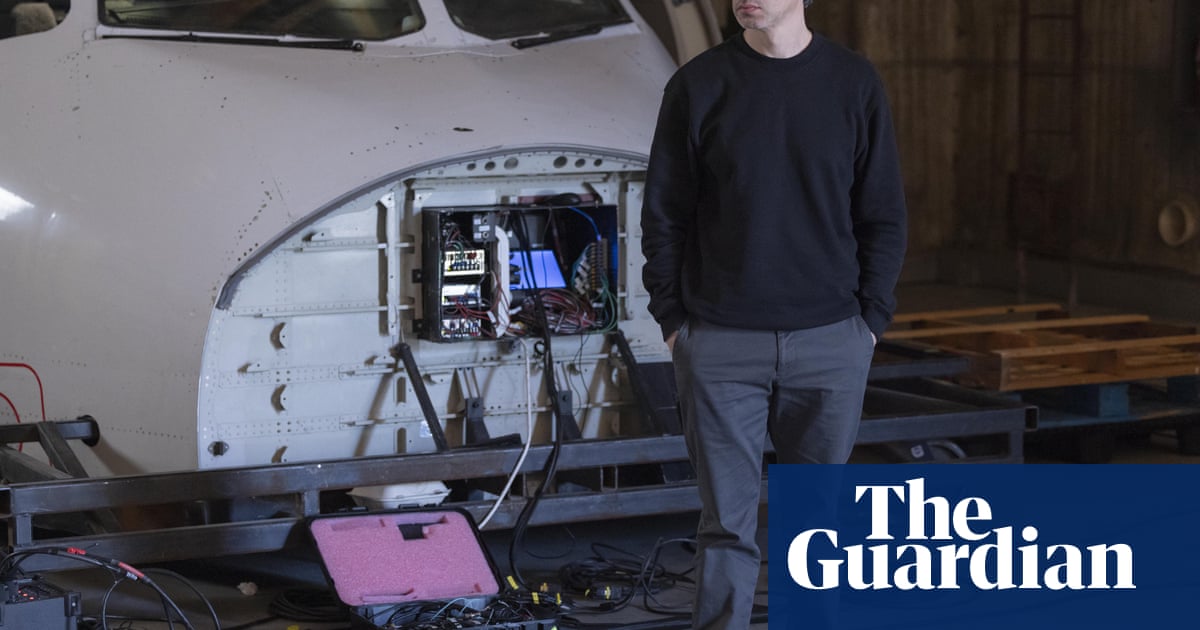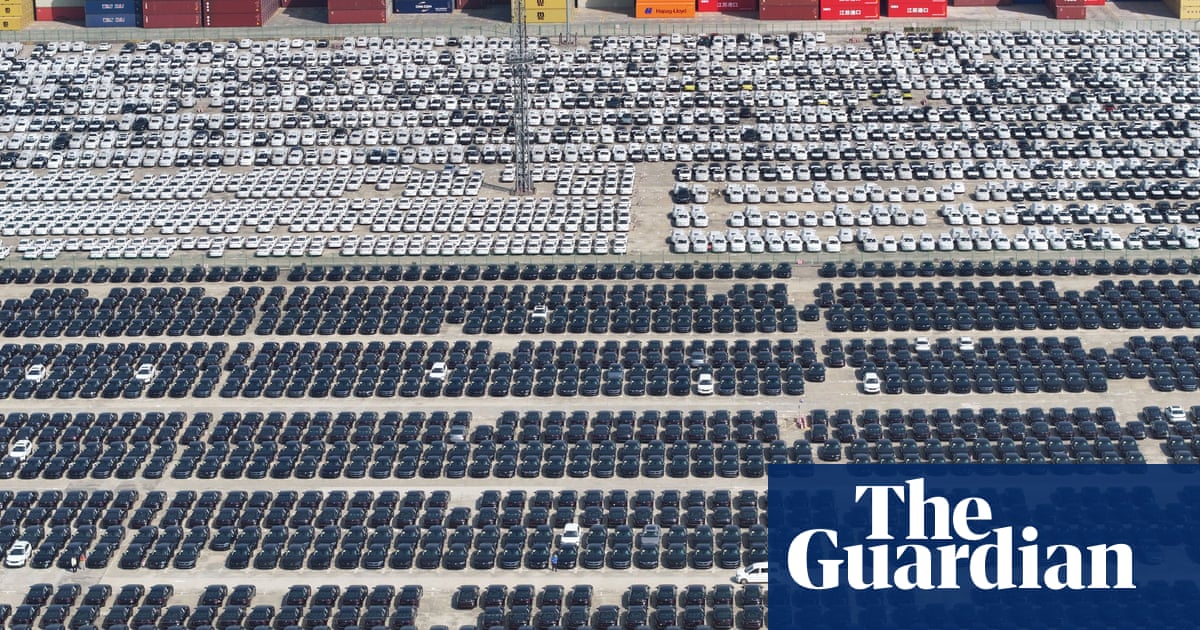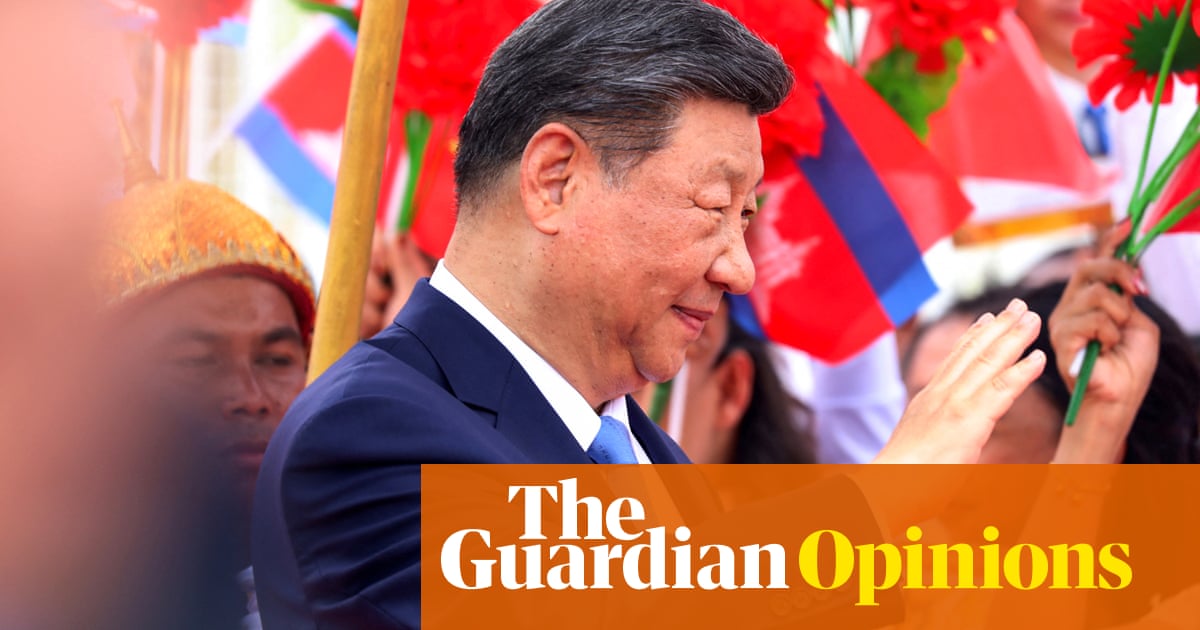Ocean Vuong’s second novel is a 416‑page tour of the edgeland between aspirational fantasy and self-deception. It opens with a long slow pan over the fictional small town of East Gladness, Connecticut, beginning with ghosts that rise “as mist over the rye across the tracks” and ending on a bridge where the camera finds a young man called Hai –“19, in the midnight of his childhood and a lifetime from first light” – preparing to drown himself. There’s an almost lazy richness to the picture: the late afternoon sun, the “moss so lush between the wooden rail ties that, at a certain angle of thick, verdant light, it looks like algae”, the junkyard “packed with school buses in various stages of amnesia”.
His poetic credentials established, the author of the bestselling autofictional On Earth We’re Briefly Gorgeous gives narrative its head. Instead of jumping from the bridge, Hai crosses it, to be adopted on the other side by 82-year-old Grazina, a woman suffering mid‑stage prefrontal lobe dementia. He will become her proxy grandson; they will be each other’s support in a crap world. It will be a disordered but productive relationship.
Grazina, born in Lithuania, “an old country, far away”, lives on a street known locally as the Devil’s Armpit, takes 14 pills a day, and always eats Stouffer’s Salisbury Steak for dinner. She needs a carer; Hai, a pillhead in remission but longing to be back in the arms of opioids, needs a more constructive narrative of himself. Between them they invent a role-playing game to bring her down from the destabilising hallucinations and insomniac panics of her disease. Then, as she sleeps, he quietly ransacks her cupboards for prescription medicines.
Some of the themes of On Earth We’re Briefly Gorgeous echo through into this novel. We recognise the familial landscapes of the Vietnamese immigration to the US; the need to manage partly assimilated, dangerously unprocessed generational tensions; the sense of life as the pursuit of a second chance. Complex relations between story and backstory also feature, but at a less demanding scale, producing less of a dense lyrical flicker at the sentence level, more of a traditional juggle with larger narrative elements. This is a huge novel in terms of where it directs our attention: from gay self-discovery to the uses of fiction; from the industrial farming of animals to the drive to write yourself free of the parental experience.
As well as chosen family, The Emperor of Gladness is also about the brutality of work. Hai takes a job at HomeMarket, a fast-casual diner chain out on Route 4. There, beside “smoking vats of vibrant, primary-coloured side dishes” precooked “nearly a year ago in a laboratory outside Des Moines”, he makes more new friends. BJ, the manager, “six foot three with a buzz cut fade and shape-up”, whose ambition is to become a pro wrestler under the pseudonym Deez Nuts; Russia, “a cuter version of Gollum from The Lord of the Rings”, who is actually of Tajikistani origins; Maureen the cashier, an ageing conspiracy theorist who relieves her arthritic knees each evening with a pack of mac and cheese from the freezer. Soon, they are his family too. Family outings include a visit to a slaughterhouse where the barbaric conditions are genuinely difficult to read, and an evening of wrestling at Hairy Harry’s dive bar: experiences and situations which move steadily towards surrealism as the novel comes to its climax.
BJ’s crew are “just like the people anywhere else in New England. Weatherworn and perennially exhausted or pissed off or both.” The take-home from their state being that, whatever else, the HomeMarket chain offers a tacky but undeniably sensual experience to the customer; and a living, however minimal, for the crew. Where they converge, these two basic socioeconomic goods encourage the emergence of a third: a genuine if brief glow of gladness cast over a life of hopeless situations. Versions of this glow become the real subject of the story. Dwellers in precarity must provide themselves with a narrative future. Some are better at it than others. For Hai – who once told himself the story of “wanting to be a writer” – such support fictions aren’t maintenance-free: after every defeat, every incursion of reality, they have to be repaired and revised. It’s hard labour, carried out in addition to his daily struggles to manage Grazina’s illness and earn a living. He’s not good at it.
We’re all writers now, Vuong seems to suggest. A cheap dinner eaten at HomeMarket under the kitsch but somehow menacing light of a Thomas Kinkade fantasy painting – “Beside Still Waters”, “Victorian Family Christmas” – is a story of reward. Two Dilaudid pills, crushed and snorted, are a story about time out. Any economic aspiration at all is so clearly a fiction. This condition is depicted with the authenticity of experience. At the same time Vuong takes it apart with patience and an ear for dialogue: “I like Nasa – the real kind, not make-believe like Star Trek,” he has Hai’s cousin Sony – named after the TV – say. “My mom likes make-believe, but I hate it. It makes things wobbly.” Heartbreaking, heartwarming yet unsentimental, and savagely comic all at the same time, The Emperor of Gladness is about just how wobbly things can become.

.png) 4 hours ago
5
4 hours ago
5













































